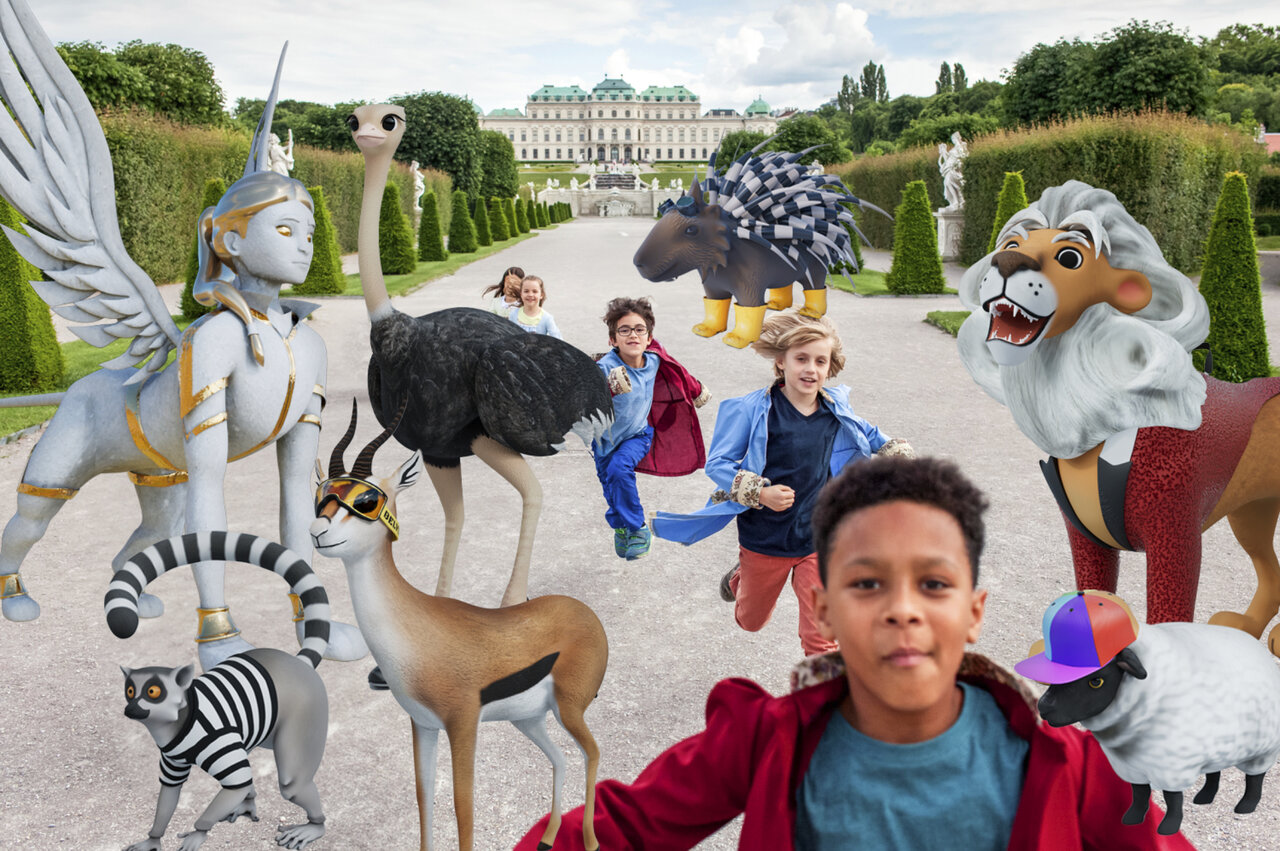Discover Vienna’s Belvedere Garden with New AR Game Play
(eap) The Baroque palace complex Belvedere, built from 1714 to 1723 for Prince Eugene of Savoy and consisting of the Upper and Lower Belvedere, which are connected by the palace garden, celebrates its 300th anniversary this year. As a cultural institution and one of the most popular sights in the Austrian capital Vienna, the palace complex naturally aims to continue attracting visitors in the future – so elements of modern exhibition design and especially new technologies are gradually finding their way into the popular tourist attraction of today.
In order to get children excited about the palace and its associated history at an early age, the Belvedere has added an Augmented Reality (AR) game to its programme this summer that is aimed at young visitors aged eight and older. “The Fantastic Palastics” is the title of the gaming application whose protagonists are six animals (including a lion, an ostrich and a sheep) that were already at home in the palace garden (then a menagerie) during the lifetime of the Belvedere’s owner Prince Eugene. The animals hide in the spacious park and it is the guests’ mission to find them and quickly provide them with the appropriate food. A map integrated into the game gives orientation. To play the game, a smartphone with camera is needed to scan QR codes placed around the castle park. It is not necessary to download an app; the game can be accessed via the Belvedere website in German or English in the smartphone browser. The game area includes the Belvedere’s garden grounds, so a ticket purchase for the museums is not required.
“The Belvedere’s new Augmented Reality game combines reality and fiction, making something visible that you can’t actually see. With it, we invite you to be outside in the open air, in motion, and interactively learn more about the garden, the palace and its history,” said Stella Rollig, General Director of the Belvedere.
Wolfgang Bergmann, Economic Director, added: “The game ‘The Fantastic Palastics’ is another example of how we use new technical applications to fulfil our educational mission. You can’t start early enough to get children and young people interested in culture – preferably in a playful form.”
The game was developed in cooperation with the Dutch agency The Brand Father and the game development company ORB, supported by the AR web development company 8th wall (also known for “Pokémon GO”). ■





